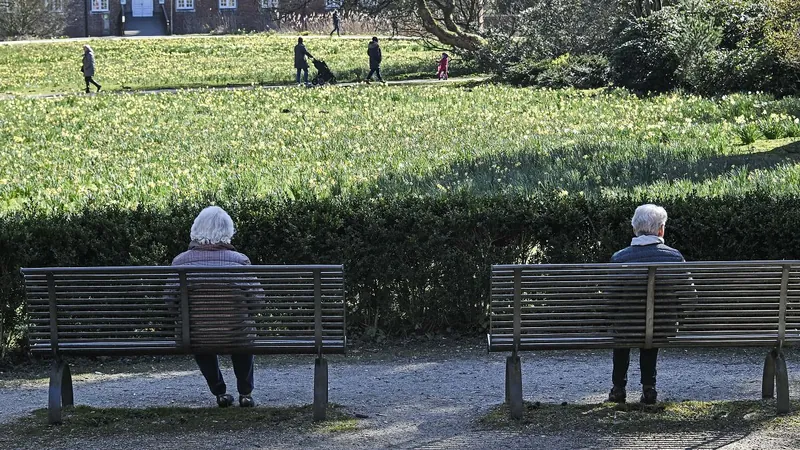
Shocking Study Reveals Loneliness Boosts Dementia Risk by Over 30%! Are You at Risk?
2024-10-11
Author: Li
A groundbreaking global analysis involving nearly 609,000 individuals has unveiled a startling connection: experiencing loneliness in midlife and old age significantly increases the likelihood of developing dementia by a staggering 31%! This has tremendous implications given that dementia currently afflicts approximately 7.9 million people in the European Union alone.
While there is no cure for dementia, various genetic factors and lifestyle choices—including physical activity, smoking, alcohol consumption, and crucially, the quality of one's social interactions—play a critical role in risk levels. The latest research, featured in the prestigious journal Nature Mental Health, found that loneliness not only escalates the risk of all forms of dementia and specifically Alzheimer’s disease but also vascular dementia—particularly concerning for older adults battling diabetes or obesity.
Additionally, loneliness is linked to a 15% increased risk of cognitive impairment—a broader category including memory loss, difficulty with decision-making, concentration problems, and the struggle to complete everyday tasks. Importantly, these findings remained valid even after accounting for variables like depression and social isolation, suggesting that loneliness is a significant risk factor for dementia's progression.
Dr. Páraic Ó Súilleabháin, a psychology lecturer at the University of Limerick and co-author of the study, emphasized the serious implications of these findings, stating that “loneliness is a critically important risk factor in the future development of dementia.” This research effort involved collaboration among scientists from Ireland, Switzerland, France, the United States, and China, representing the largest meta-analysis to date exploring the intricate relationship between loneliness, dementia, and cognitive decline.
A significant 35% of individuals across Europe report feeling lonely at least occasionally, with particularly high rates noted in countries like Ireland, Luxembourg, Bulgaria, and Greece. Dr. Martina Luchetti, the study’s lead author and assistant professor at Florida State University, indicated that the nature of loneliness varies widely, affecting cognitive symptoms along the dementia spectrum in diverse and complex ways.
The ramifications of loneliness extend beyond dementia—previous studies have linked it to various health issues including strokes and Parkinson’s disease. The researchers argue that understanding why people feel lonely, as well as the specific types of loneliness they experience, could be vital in developing targeted interventions to lower the risk of cognitive decline and dementia.
In light of these striking results, promoting social connectedness and addressing feelings of loneliness could serve as a protective measure for cognitive health in later life. Are you or someone you know feeling isolated? It may be time to reach out—building meaningful connections might just be the key to better health and longevity!


 Brasil (PT)
Brasil (PT)
 Canada (EN)
Canada (EN)
 Chile (ES)
Chile (ES)
 España (ES)
España (ES)
 France (FR)
France (FR)
 Hong Kong (EN)
Hong Kong (EN)
 Italia (IT)
Italia (IT)
 日本 (JA)
日本 (JA)
 Magyarország (HU)
Magyarország (HU)
 Norge (NO)
Norge (NO)
 Polska (PL)
Polska (PL)
 Schweiz (DE)
Schweiz (DE)
 Singapore (EN)
Singapore (EN)
 Sverige (SV)
Sverige (SV)
 Suomi (FI)
Suomi (FI)
 Türkiye (TR)
Türkiye (TR)